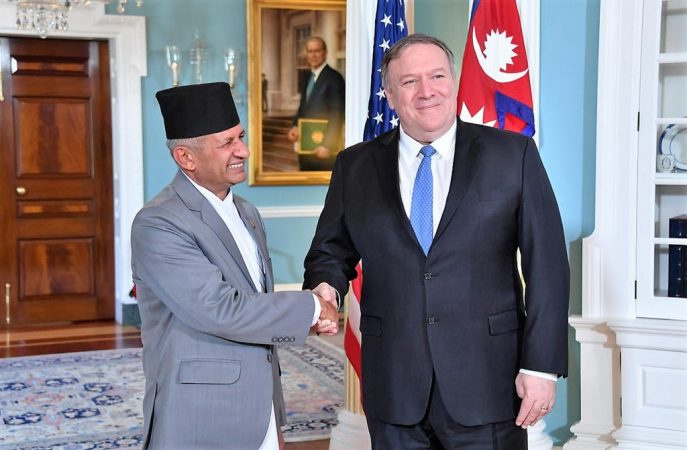“The US side shared their Indo-Pacific vision and talked about Nepal’s possible central role in it. In response, we conveyed them that Nepal does not believe in any strategic alliances and will not enter into such activities,”.

Nepal Foreign Affairs (KATHMANDU, 22 December 2018) – Foreign Minister Pradeep Kumar Gyawali has said that Nepal does not believe in any alliances and will not enter into such activities.
“The US side shared their Indo-Pacific vision and talked about Nepal’s possible central role in it. In response, we conveyed them that Nepal does not believe in any strategic alliances and will not enter into such activities,”he said in the ongoing standing committee meeting of the ruling Nepal Communist Party (NCP) today.
Briefing the standing committee members about his visit, the foreign minister clarified that Nepal could not a be a part of any strategic alliance and such issue was not discussed with US counterpart. He assured that Nepal had not taken any decisions to participate in the US-led grand strategy.
The strategy is aimed at reshaping America’s regional approach and coalescing efforts to manage a rising China.
“… the two leaders discussed Nepal’s central role in a free, open, and prosperous Indo-Pacific, [and] global issues, including North Korea,” Deputy Spokesperson at the State Department Robert J. Palladino said in a press statement on December 18 following a delegation-level meeting between Foreign Minister Gyawali and his US counterpart Michael R. Pompeo.
As a part of its Indo-Pacific strategy, the Trump administration had earlier announced $113 million in investment to promote digital, energy and infrastructure connectivity in the Indo-Pacific in the midst of China scaling up its infrastructure loans to various countries in Asia Pacific including Nepal, Sri Lanka, Pakistan and Maldives in recent years.
On the other hand, the US is currently seeking to strengthen its alliance and partnership with various countries in the Indo- Pacific, mainly those within the orbit of China, as disputes linger between the two countries on issues of trade and the South China Sea.
The Chinese side takes the US Indo-Pacific strategy as a geostrategic measure to contain China.


